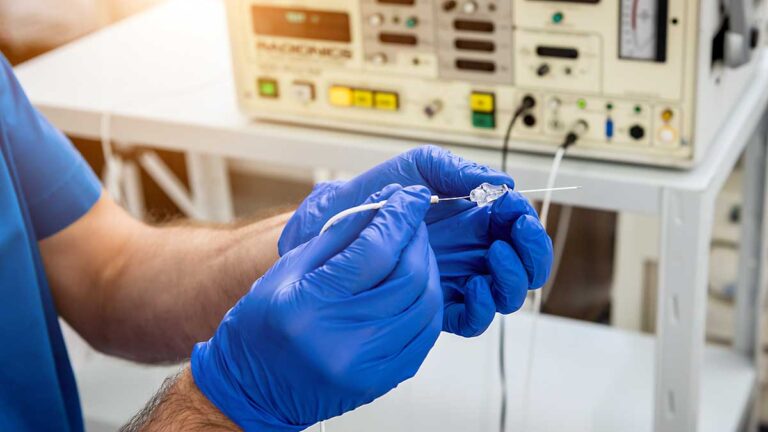Allied Spine Institute offers a comprehensive range of interventional pain procedures to address shoulder pain, tailored to each patient’s specific needs. These treatments are organized from the least to the most invasive:
1. Subacromial Injection
This minimally invasive procedure involves injecting a local anesthetic and corticosteroid into the subacromial space to reduce inflammation and alleviate pain. It’s typically performed in the office, and patients can resume normal activities shortly after.
2. Glenohumeral Joint Injection
This injection targets the shoulder joint directly and delivers medication to reduce inflammation and pain associated with conditions like arthritis or injury. The procedure is quick and can provide relief for several weeks to months.
3. Suprascapular Nerve Block
This procedure effectively blocks pain signals from the shoulder joint by injecting a local anesthetic around the suprascapular nerve. It’s performed in the office and can offer relief lasting weeks to months.
4. Radiofrequency Ablation (RFA)
For chronic shoulder pain, RFA uses heat to disrupt nerve signals that transmit pain. This outpatient procedure may require sedation and can provide long-term relief.
5. Arthroscopy
As the most invasive option, arthroscopy involves inserting a small camera and surgical instruments into the shoulder joint to repair damaged tissues or remove debris. Performed under sedation, it addresses various shoulder injuries and conditions.
Benefits of Interventional Shoulder Pain Treatments:
- Targeted Relief: Directly addresses the source of pain for effective results.
- Minimally Invasive Options: Many procedures are outpatient with minimal recovery time.
- Reduced Medication Dependence: Potential to decrease reliance on pain medications.
- Improved Functionality: Enhances shoulder mobility and overall quality of life.
Consultation and Personalized Care:
Consult a pain management specialist to determine the most appropriate treatment based on individual conditions and medical history. At Allied Spine Institute, our team is dedicated to developing personalized care plans that effectively manage and alleviate shoulder pain.
Note: For detailed information on each procedure, please visit the respective pages on our website.









